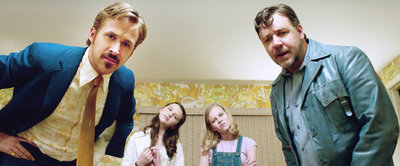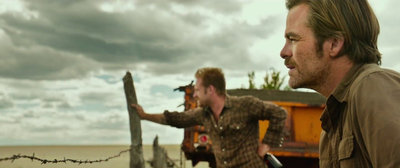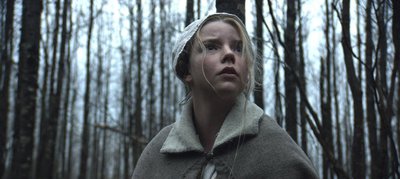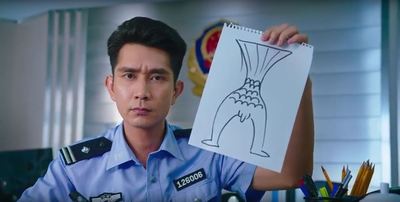We continue our recap of the year in movies with our top 10 list, only a month and half late! But I snuck it in before the Oscars, so there is that. This marks the eleventh year I’ve posted a top ten, which is pretty hard to believe. For reference, previous top 10s are here: [2015 | 2014 | 2013 | 2012 | 2011 | 2010 | 2009 | 2008 | 2007 | 2006]
Summing up the year in movies and compiling a list of 10 favorites is an arbitrary exercise, but it’s something I enjoy wrangling with. A couple years ago, I observed that Hollywood had really pulled their shit together and put out a pretty impressive slate of blockbusters. Well, those stars are all misaligned right now, because this was a positively dreadful year for blockbusters, lead in particular by a never-ending series of sequels and remakes that literally no-one was asking for (and which did about as well). The Huntsman: Winter’s War, Now You See Me 2, Mechanic: Resurrection, Inferno, and Ben Hur, just to name a few. Marvel managed a couple solid entries, and there was a decent Star Wars flick, but otherwise things looked pretty bleak. It’s tempting to say we’ve reached “peak sequel”, but that’s just wishful thinking. The real problem this year was that all these sequels were just so bad. In 2015, we at least had movies like Creed or Mad Max: Fury Road (two long-gap sequels no one was really clamoring for, yet which turned out fantastic).
As a result of these underperforming tent-poles, us movie dorks had to put on our archeology hats and dig deep to find the real gems. It usually takes some effort to round out the top 10 by delving into the offbeat and obscure offerings of the year, but this year moreso than others. My favorite stuff tended to be the middle-tier (budget wise) offerings that seem to be an endangered species in our current movie environment, but they’re still there if you know where to look.
As of this writing, I have seen 78 movies that could be considered a 2016 release. This is about on-par for me, more than your typical moviegoer, but less than your average critic. Not exactly comprehensive, but enough such that a top 10 is actually a meaningful segment. Standard disclaimers apply, let’s get to it:
Top 10 Movies of 2016
* In roughly reverse order
-
Tickled – Ostensibly about a journalist’s attempts to get to the bottom of a mysterious ring of online tickling competitions, this documentary quickly pivots to an odd and more relevant exploration of online abuse. While this particular story only covers a tiny chunk of people impacted, it has broader implications. Perhaps not as formally inventive as its subject matter, it nonetheless makes an impression that is hard to shake.
More Info: [IMDB] [Amazon]
-
Love & Friendship – Jane Austen period costume dramas are not exactly in my sweet spot, but this movie pleasantly surprised me. I attribute a big part of this to an excellent lead performance from Kate Beckinsale, wry and manipulative. The witty writing from Whit Stillman also deserves recognition, and the movie as a whole is a delight. Comedies, especially unusual ones like this, often get left out of the end-of-year conversation, so I’m really happy to point to this one…
More Info: [IMDB] [Amazon] [Kaedrin Movie Award Winner]
-
Green Room – Jeremy Saulnier’s tense thriller really knows how to ratchet the tension. Excellent performances all around, but the standout is the menacing Patrick Stewart (he didn’t win the Best Villain award for nothing, folks). Not an easy movie, but very well executed.
More Info: [IMDB] [Amazon] [Kaedrin Movie Award Winner]
-
Hunt for the Wilderpeople – Taika Waititi is quickly becoming a Kaedrin favorite. This tale of a rebellious kid (a “bad egg”) taking off with his foster-uncle (a gruff-looking Sam Neill) turns out to be a heartwarming treat. Most descriptions make it sound overly familiar or cliched, but while the overarching skeleton may appear that way, the details and execution are on point. It doesn’t come off anywhere near as cliched as you might expect.
More Info: [IMDB] [Amazon]
-
The Nice Guys – Writer/Director Shane Black didn’t invent the buddy comedy dynamic, but he’s made a career out of tweaking the formula. A pair of irregular private detectives try to locate a missing girl and get wrapped up in a convoluted conspiracy surrounding a murder case.
Great performances from Russell Crowe and Ryan Gosling, and Black’s sharp script helps too.
More Info: [IMDB] [Amazon]
-
Hell or High Water – One of the quiet surprises of the year, this tale of West Texas bank robbers and the policemen on their tale is well paced and clever. Writer Taylor Sheridan produced a real gem here, with the best dialogue of the year servicing a complex and culturally relevant plot.
This is a prime example of the sort of endangered mid-budget movie I mentioned in the intro, and it would truly be a shame to miss out on movies like this. Well worth your time.
More Info: [IMDB] [Amazon] [Kaedrin Arbitrary Award Winner]
-
The Handmaiden – Chan-wook Park’s latest and among his best, this tale of a Korean handmaiden attempting to pull a con on a Japanese heiress is twisty and turny in the best way possible. Great performances and visually gorgeous to boot. It’s surprisingly funny too. Perhaps not for everyone, but I loved it.
More Info: [IMDB] [Amazon] [Kaedrin Movie Award Winner]
-
Weiner – This portrait of Anthony Weiner’s self-destruction is made all the more remarkable due to the extraordinary amount of access the filmmakers had during Weiner’s doomed mayoral campaign. It’s got its tragic elements, but also enough pathos to soften the blow without shifting blame or sugarcoating anything. An unflinching look at a train wreck.
More Info: [IMDB] [Amazon]
-
The Witch – An exceptional exercise in verisimilitude… except for one key detail: Witches are real! This actually represents a clever twist on your typical Witch Hunt narrative, one that makes it much more relevant to today’s climate than you would initially think.
Chilling and fascinating, this is a movie that really stuck with me.
More Info: [IMDB] [Amazon] [Full Review]
-
Arrival – I’m often hard on science fiction films because it’s so rare to see what I love about SF literature captured on screen. What’s more, when you read Ted Chiang’s Story of Your Life, you are not immediately struck by the story’s cinematic potential. But Denis Villeneuve and writer Eric Heisserer managed a near miracle in adapting Chiang’s complex tale of language and motherhood. They add some geopolitical wrangling to spice things up, but they don’t devolve into typical Hollywood alien invasion shenanigans and still manage to evoke the same, more personal feelings and questions I had while reading the story. It also arrived at a politically opportune moment, giving it an added dose of relevance. One of the best pieces of cinematic SF of all time, and certainly the best of the year.
More Info: [IMDB] [Amazon] [Kaedrin Movie Award Winner] [Full Review]
Special Jury Prize
Awarded to the movie that doesn’t quite fit the traditional notion of a movie and thus does not make the top 10, but deserves recognition beyond Arbitrary Awards or Honorable Mentions nonetheless.
-
O.J.: Made in America – At almost 8 hours long, it’s hard to consider this documentary a traditional “movie”… and yet, it’s so well done that it deserves some form of unique recognition. It covers O.J.’s life and times leading up to the infamous murder trial, but it also delves into much of the social and political context for the trial. It never feels like pandering, but it doesn’t flinch at difficult subjects either. It’s certainly an achievement and well worth watching.
More Info: [IMDB] [Amazon]
Honorable Mention
* In alphabetical order
-
10 Cloverfield Lane – One of the year’s baffling long-gap sequels that no one was really looking for, this one is actually a standalone tale (barely connected to its predecessor) and perhaps that’s why it succeeded where so many other sequels failed. A tense, bottled story, an unhinged villain, and some deft twists make this thriller well worth your time.
More Info: [IMDB] [Amazon]
-
Captain America: Civil War – The premise behind this story, while a time-honored tradition among comic book fans, is one of my least favorite tropes. Pitting heroes against one another is fine in isolation, more problematic in context. Nevertheless, Marvel manages to pull it off in fine style here, in part because they are able to acknowledge both sides of the argument and then delve into more interpersonal conflicts. It’s certainly not a perfect movie, nor does it live up to the previous installment in the series, but it was still wildly entertaining, which is all I really need from these movies.
More Info: [IMDB] [Amazon] [Full Review]
-
Doctor Strange – Another Marvel shot in the dark that manages to hit its target, one of the things I love about the MCU is their willingness to take a chance on more obscure or out-there characters like Doctor Strange. As I understand it, they maybe softened the edges a bit too much, but there’s plenty of weird stuff here, some interesting visual cues, and a relatively clever climax that kinda subverts the typical blockbuster explodey ending.
More Info: [IMDB] [Amazon]
-
Don’t Breathe – This tale of a group of hoodlums attempting to rob a blind man, only to have him turn the tables on them, is one of the best horror movies of the year. Tense, well crafted, and thrilling, it suffers from a third act twist involving a turkey baster. A little more care in that (rather gross) situation could have easily put this in the top 10, but alas, that was not to be.
More Info: [IMDB] [Amazon]
-
Hail, Caesar! – Howard Hawks famously described what makes a good movie: “Three great scenes, no bad ones.” Well, this movie does have three of my favorite scenes of the year: A studio executive discusses God with an assortment of priests and a rabbi. “Would that it ’twere so simple.” And a group of communists calling themselves “The Future” discuss class conflict as it relates to the devision of labor on a movie set. Or maybe the Channing Tatum-led musical number. Or Scarlett Johansson’s synchronised swimming bit. Or about ten other scenes. Nearly a top 10 pick (i.e. Hawks isn’t wrong here), but it falls just short because all these great scenes never really coalesce into more than the sum of their parts. This could change with a rewatch and further consideration, as sometimes happens with the Coen Brothers’ more unruly efforts, but for now, it remains an honorable mention.
More Info: [IMDB] [Amazon]
-
The Invitation – A man goes to a dinner party hosted by his ex-wife and her new husband. Soon, he starts to suspect something more sinister is going on. Director Karyn Kusama’s deliberate, meticulous thriller builds tension slowly but steadily, lulling you in until violence starts to break out. Then things escalate even further, culminating in the slowly dawning dread of the its final shot. A strong contender for a #10 slot, and on another day, it might have show up there.
More Info: [IMDB] [Amazon]
-
Kill Zone 2 – The best action movie I saw all year, this also aspires to a bit more with a script filled with interlocking coincidences and missed connections being discovered. But still, the real reason to watch this is the fight choreography and the execution from the likes of Tony Jaa. I’m not an expert in martial arts, but this is the best action I’ve seen since the last Raid movie.
More Info: [IMDB] [Amazon]
-
La La Land – I’m not a huge fan of musicals and while this movie didn’t completely convert me, I did find myself enjoying it quite a bit. I didn’t find myself taken by the music itself, but rather the filmmaking. The opening number, filmed to appear as one long take. Or the bittersweet montage towards the end of the film. Director Damien Chazelle clearly knows what he’s doing and I have to respect going against the grain like this. That being said, it doesn’t quite stack up against the classic musicals of yore that it clearly intends to evoke.
More Info: [IMDB] [Amazon]
-
Manchester by the Sea – A subtle study in grief centered on the notion that someone who is broken by tragedy might not be able to recover, I found myself respecting and admiring this film more than feeling for it. Not an easy movie to shake, and Casey Affleck’s central performance is deserving of praise, but it all left me feeling a bit cold. That’s kinda the point, and I do like the very end, which gives a well earned glimpse of hope. Still not sure it needed to be as long as it was, but writer/director Kenneth Lonergan clearly knows what he’s doing, and even the extraneous bits feel exquisitely observed (in particular, the “band practice” scenes are probably unnecessary, even if they’re brilliantly conceived and executed).
More Info: [IMDB] [Amazon]
-
The Mermaid – Stephen Chow’s latest certainly fits his particular brand of manic nonsense. It’s funny (I particularly enjoyed the police sketch artist bit), even if some of the gags don’t quite survive translation and the tone (especially towards the end) is a little unsteady.
Still, Chow’s kinetic genius is on full display, and this is well worth a watch.
More Info: [IMDB] [Amazon]
-
Moana – Disney continues a strong run of animated hits of late, and this Polynesian-inspired tale of adventure hits the mark. As musical numbers go, this one has more memorable bits than La La Land (if not quite as numerous), and a more exciting story too. It’s a lot of fun.
More Info: [IMDB] [Amazon]
-
Moonlight – A character study divided into three sections, titled “Little,” “Chiron,” and “Black,” each a name our protagonist adopts at a different stage of life. It’s strongest in its first third, anchored by Mahershala Ali’s performance as a drug dealer who helps out a kid (“Little”) being chased by bullies. Impeccably crafted and empathetic, this is the critics’ choice of the year, and I can see why, even if these sorts of movies don’t appeal to me as much.
More Info: [IMDB] [Amazon]
-
Popstar: Never Stop Never Stopping – Comedies get short shrift in the end-of-the-year hustle, but this one seems to have struck a nerve. Another musically inclined film that deserves recognition, and it’s quite funny too. Pleasantly silly and sharp. Well worth a watch.
More Info: [IMDB] [Amazon]
-
Sing Street – Of the musically inclined movies of the year, this one is the most joyous and entertaining. Writer/director John Carney has carved out this niche of musicians discovering one another through collaboration, and while this tale of a young boy starting a band to impress a girl might seem cliched, it still works. It was a great movie to catch up with after wading through depressing end-of-year fare (not to mention the election). It’s on Netflix instant and it’s a big ball of fun, watch it!
More Info: [IMDB] [Amazon]
Just Missed the Cut:
But still worthwhile, in their own way. Presented without comment and in no particular order:
Should Have Seen:
Despite having seen 78 of this year’s movies (and listing out 30+ of my favorites in this post), there are a few that got away. Or never made themselves available here. Regardless, there are several movies here that I probably should have caught up with:
That about covers it! Stay tuned for some Oscars commentary next week, after which we’ll probably return to some SF and books…



